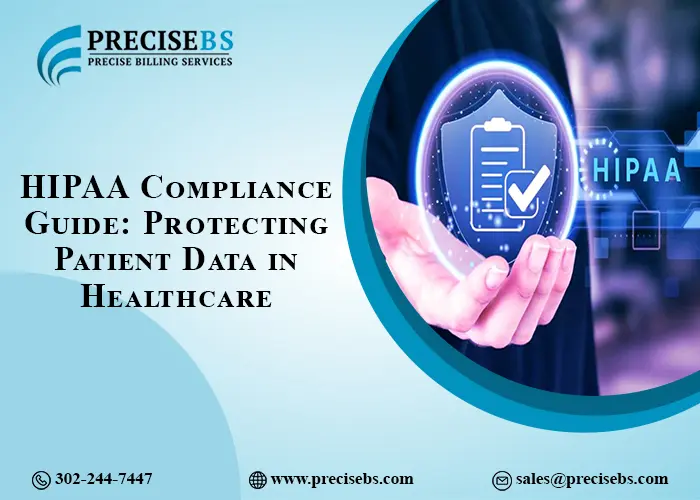HIPAA compliance is a cornerstone of patient trust, safety, and data security. If you’re a healthcare provider, understanding and implementing HIPAA compliance practices isn’t just a legal requirement—it’s vital to safeguarding patient privacy. This guide offers a complete overview of HIPAA (Health Insurance Portability and Accountability Act) compliance, including key guidelines, checklists, and penalties to help you navigate healthcare data privacy with confidence.
What Is HIPAA Compliance?
HIPAA compliance refers to adhering to the rules and standards set by the Health Insurance Portability and Accountability Act (HIPAA) to protect sensitive patient information. Since its enactment in 1996, HIPAA has shaped the way healthcare providers manage and protect patient data, aiming to ensure confidentiality, integrity, and security of healthcare information.
HIPAA consists of multiple rules, including the HIPAA Privacy Rule and HIPAA Security Rule, both of which outline essential guidelines for handling patient data. From safeguarding medical records to training employees on data privacy, HIPAA compliance ensures that healthcare providers handle patient information responsibly.
Why HIPAA Compliance Matters
For healthcare providers, HIPAA compliance is essential for several reasons:
- Patient Trust: Patients trust that healthcare providers will protect their sensitive information.
- Legal Obligation: Health Insurance Portability and Accountability Act compliance is a legal requirement; failure to comply can lead to severe penalties.
- Enhanced Data Security: Proper compliance practices strengthen the security of electronic health records and other medical data.
Ensuring Health Insurance Portability and Accountability Act is not just about avoiding penalties—it’s a critical part of maintaining the reputation and credibility of any medical practice.
Key Components of HIPAA Compliance
- HIPAA Privacy Rule: This rule establishes national standards to protect individuals’ medical records and other personal health information (PHI). It applies to all healthcare providers, requiring them to take steps to secure patient data from unauthorized access.
- HIPAA Security Rule: This rule sets standards specifically for electronic PHI (ePHI) and mandates certain HIPAA security measures for healthcare organizations. This includes implementing administrative, physical, and technical safeguards to protect ePHI.
- HIPAA Breach Notification Rule: This rule requires healthcare providers to notify affected individuals, the Secretary of Health and Human Services (HHS), and sometimes the media, of any breach involving unsecured PHI.
- HIPAA Enforcement Rule: This rule gives the HHS authority to investigate complaints, conduct compliance reviews, and enforce penalties for non-compliance.
Essential HIPAA Compliance Checklist for Healthcare Providers
Achieving and maintaining HIPAA compliance can seem overwhelming. Here is a straightforward checklist to ensure your practice aligns with HIPAA regulations:
- Conduct Regular Risk Assessments
Assess potential risks to patient information and establish strategies to minimize those risks. - Implement Strong Security Measures
Use encryption, firewalls, and secure access protocols to protect electronic medical records. - Establish Patient Rights Procedures
Ensure patients can access, request corrections to, and control their health information as specified under HIPAA patient rights. - Provide HIPAA Compliance Training
All employees handling PHI must receive Health Insurance Portability and Accountability Act compliance training to understand patient privacy laws and data handling protocols. - Create a Breach Notification Policy
Have a clear process for notifying patients, HHS, and others in case of a data breach. - Document All Compliance Efforts
Maintain thorough records of all HIPAA compliance efforts, including training logs, risk assessments, and security updates.
HIPAA compliance is not a destination, it’s a journey.
Compliancy Group
HIPAA Violation Penalties and Their Impact
Non-compliance with HIPAA regulations can lead to severe penalties, both financially and legally. HIPAA violation penalties are divided into four tiers, based on the level of negligence:
- Tier 1: Violations where the covered entity was unaware.
- Tier 2: Violations due to reasonable cause but not willful neglect.
- Tier 3: Willful neglect, corrected within 30 days.
- Tier 4: Willful neglect, not corrected within 30 days.
Penalties can range from $100 to $50,000 per violation, with an annual maximum of $1.5 million per tier. Additionally, HIPAA violations can damage a healthcare provider’s reputation, leading to loss of patient trust and even potential lawsuits.
HIPAA for Medical Practices: Best Practices for Compliance
Ensuring HIPAA compliance in medical practices involves a few best practices:
- Regular Audits and Assessments: Routinely review and audit data privacy practices.
- Employee Awareness and Training: Regularly conduct Health Insurance Portability and Accountability Act compliance training for all staff members.
- Encryption and Access Control: Encrypt sensitive information and restrict access to authorized personnel only.
- Clear Policies and Procedures: Establish policies for handling PHI, handling breaches, and securing electronic records.
- Patient Communication: Ensure patients understand their rights under HIPAA and how their data is used and protected.
By adopting these practices, medical practices can significantly reduce the risk of non-compliance and improve overall patient data security.
How HIPAA Compliance Protects Patient Rights
HIPAA compliance not only mandates data security measures but also establishes critical patient rights:
- Access to Records: Patients have the right to obtain a copy of their medical records.
- Data Correction: Patients can request corrections if they find errors in their records.
- Privacy Protections: Patients have the right to restrict certain uses and disclosures of their health information.
These rights empower patients and build trust in healthcare providers who are committed to protecting patient privacy laws and securing sensitive information.
Ensure HIPAA Compliance in Your Practice Today
HIPAA compliance is a crucial aspect of healthcare that demands careful attention to legal standards and patient privacy. By following this essential guide, conducting regular audits, and staying updated on HIPAA security compliance requirements, you can safeguard patient information and maintain the trust of those you serve.
Take Action Today: Start by implementing the HIPAA compliance checklist, provide HIPAA compliance training to your team, and enhance your security measures. Protecting your patients’ data isn’t just a requirement—it’s a commitment to quality care.

